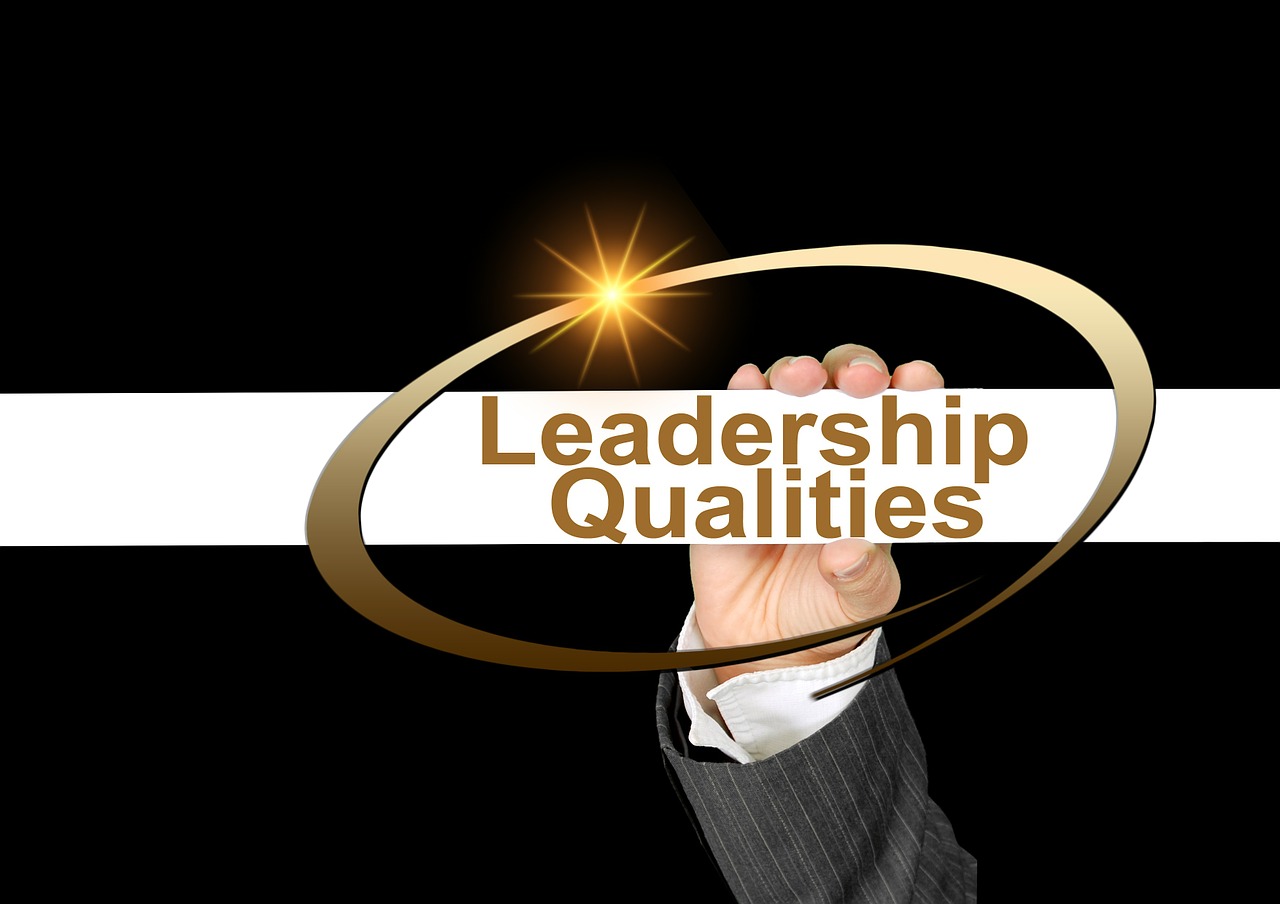
Self-management
Who is the leader in your life? Are you?
By: Dorte Joy Juul
1. Introduction
1.1 Problem Background.
When we talk about self-management, we also talk about self-awareness - culture, and behavior.
We have for decades divided/separated man up in the body-mind, and spirituality. 1.
We have some doctors who are specialists in body matter, psychologists who specialize regarding mind and when everything goes mad, we seek guidance from the spiritual guides.
It has also been of great benefit to the specialists. It has given us much new knowledge. However, it has also made that we have become too parochial and thereby lost the gaze of how things work and are created.
The things we can transfer to our businesses and organizations. The companies will also set up several specialized managers and HR development for more specific areas, such as cooperation and results, or cooperation and resources, psychological work, bring down illness days, strategies, etc.
This is where our behavior, culture, and self-awareness come in. All communications ARE behavior, and we are a product of our parents and our external environment. The behavior we learned as a child is often not appropriate as an adult.
We are constantly receiving signals from both our inner and outer. To be able to read these signals, we must be cleaned out in an amount blocking performances created by a desire to understand life. Life can and must not be understood. We must believe in life >> TRUST << if we want to live life, for if we do not believe we will understand, and then we come to block life through a variety of unconscious responsive defense mechanisms that we are not in contact with.
Most people are reacting in defense against their true "feelings." This could create consequences. Both physical, mental, but also materialistic.
You can begin to learn of today's events, as it is only you who know what you are thinking and feeling about the events that you experience in the absolute now.
Learn to communicate, so that we do not provoke each other's defenses. Learn to use a sense journal.
We do not see the world as it is, but as we are and from there we act.
We know that the first two years of a child's life are the most important ones because they are summary/foundation of our continued growth.
Anxiety trained in defenses.
We learned that anxiety is dangerous or unpleasant. Ex. The child of approximately, two years. Approaching the road, ‘’ugh – ugh beware, it’s dangerous. There are cars driving here.’’ This phrase is often heard in various guises. Here the child is trained into thinking that anxiety is dangerous. (Can cause anxiety to take responsibility and act like an adult)
Anger trained in defenses.
We ask the child ‘’Can you do the table?’’ ‘’No’’ answered the child. ‘’Well, that you must’’. Here the child is trained up to, that limits are not good. (May cause lack of respect for themselves and others as an adult.)
Grief trained in defenses
Grief is often confused with self-pity, through lack of confidence and respect for themselves. Here we can see how we have been trained to distort reality. Read the top of the website Dorte Erlingsson EQ: We reap what we sow.
We have three basic emotions: anxiety-anger-sorrow when we act truly on them we will experience joy. The consequence is that we can use to see if we acted in truth.
It is also about our unconscious building /training of communication. We can learn/train to communicate, so we do not provoke defense works, but it means that we must become more self-conscious about the signals we send and receive in the team for our "Communication" and the courage to give constructive criticism.
I have studied 12 years of self-exanimation and taught. I will here give some of my own learning and experience.
1.2. Issue.
Our feelings are our inner GPS, but we express our feelings communicative.
When we talk about the external world and events, it is that our behavior is reflected in our memories and from there we create, from decisions and choices. The brain is like Google and comes up with the proposals we learned to use as a child. However, the brain does not know that what we learned as a child were defenses. So it just goes on to use the defenses we learned with emotion.
We are in a global crisis in most of the world. There is much talk about strategies and other options, but what is there, in fact, the basis for the choices we have made? What is needed to balance the world’s economy, also in individual companies, both private and public? It’s people that control takes some choices and lead decisions out. We reap what we sow, or to put in another way. What we send out is what we are getting back.
Here I will add a few tools and refer to my own experiences and use of emotion record, and what I have learned to uncover my maps. I call it history.
Get an understanding of our own behavior and behavioral patterns, and what it does to us.
When we saw the anxiety, we responded with joy or anger.
When we saw the anger, we reacted with anxiety or sadness.
When we saw the joy, we reacted with fear or anger.
Here are some examples from my own self-examination by feeling behavior Journal.
Ex.1. I came to work one day and saw that my assistant was standing and had taken one of the customers private. I was shocked and anxious. I did not know what to say. If I fired her, I could run the risk that she would take many of her customers. I was irritable and angry. I tried to dodge her, she asked a few times if there was something wrong, but I just replied no, and stiffened just by the question.
"The fear that covers the anger, also called confrontational, self-importance, defense and so on."
Until one day when we both sat in the back room. She confronted me and asked why I was so angry. I am not angry, but a little later I crept to the issue and said that I had seen that she had taken a customer as a private customer. She admitted that it was wrong, but they were good friends, I asked if there were others I did not know about, as I would like to know it now. There were no others. However, the incident sparked a confrontation with my own behavior. I had never experienced anxiety because my whole life I had tried to suppress the fear. I become afraid of my own vulnerability, as webbing to distrust the faith of not being good enough, overshadowed everything. Is she better than me, what if she left?
This was where my stress took over; I woke up one night and would put the covers on my daughter. "Here I learned the difference between self-importance and took myself seriously ".
I was paralyzed, I could not move or feel my body, and it was like sitting on a carousel. This incident triggered stress. Infringements had piled up. A diagnosis of stress is everything we do not reach of our own. It is about the signals we receive and how we act on them. How do we perceive signals, positive or negative? The consequences are the answer to whether we acted positive or negative. This is where we can learn how psyche and disease are linked, and how our unconscious defense works can make us ill if we ignore the signals we receive.
How do we receive and how are we affected by communication. "Our internal map/history”.
EX. 2: A new colleague arrives at the company. The new colleague has extensive experience in other areas and uses advanced experiences to new solutions and to do things differently. The staff of the company is not exactly thrilled with the new proposals, especially one expresses his dissatisfaction. What we are used to doing, works very well, so it is not necessary to change it. The reason may be fear of acting - could I figure it out - the fear of losing face, or does she think, she is more than us /me. Any judgment contains condemnation also of our selves.
This is an example of many corporate limits where we limit ourselves and each other to grow. It can affect the psychological work and choice of decisions.
EX 3. The employee comes up to the manager and says: I think that the thing could run well the other way. The employee talks about his friend who had learned some tools to solve some problems or other ways of doing things. (The employee only quickly looks. They could be used at her workplace.) This is all about communication and how we unconsciously provoke each other's defenses. What we receive is a reflection of what we send out.
1.3. Problem definition.
Examples 1: Here I reacted with anxiety instead of anger.
Example 2: Here, she reacted with anger against fear. The self-awareness can be a godsend, when we become aware of our seeming distrust, for only then that we can see how it limits us, and then it can become a force forward.
Example 3: Is about communication and how we unknowingly exceed each other's boundaries "Anger." We always believe that all do the best they have learned. This was an expression of an attack, and it is in that "I THINK."
A constructive approach could be. I was with a friend, where she talked about how they did and grabbed the thing and end. "I got a feeling of" maybe we could use some of the tools, what do you experience?
This is not only about the conflicts, but more about how we create them.
Using a sense journal, we will even be able to identify what it is really about. What does it do me when I see an experience or when she received the communication, in Example 3.
In Example 1-2. By communicative self-awareness and understanding of our feelings, the experiences we receive, we can use each other constructively, so that together we can grow, to the benefit of the individual themselves and for cooperation in companies and into the rest of society.
2. Boundary
I have instead of the totality of communication "The managerial communication model" since I have worked with self-examination, self-understanding, self-management for many years. The knowledge has taught me to see connections, also called helicopter perspective. We do not need to dig into the past when its past has caught up with us, so we can just take today's events and start getting insight and clarity on our map/history.
2.1 What is self-management?
Self-management is to be able to manage ourselves and take responsibility. To do this, you ask yourself >> self- knowledge <<. What one experiences in a given situation. What you can learn from it and the feelings associated with. So here we begin to uncover our thoughts. If in defense or attack, as it will affect our spoken words >> Word -force and values <<. Here it is important to ask about the open questions wh-words. When we work in this way, we will be able to strengthen each other in uncovering our blockages and restrictions and give motivation to the benefit of the individual self and the cooperation of the company to create value and achieve common goals.
3. Analysis
When I think of vision, I think first of all, what is the basis for what we have created? We are in a global crisis - about half of the Danish population is on free transfer income, and more will follow. We lose more young people in our society. We have managed to create some fertilizer. How do we use this fertilizer, are we letting it be, and just builds, or draws we fertilizer out of the learning processes we create (we reap this we sow). We all know that if the foundation is not intact from the start, our vision -the project – the goal is often doomed in advance
3.1 Main conclusion.
I want to make a collection of the importance of self-management and self-awareness of our own behavior and perception of the experiences we create, as it may reinforce self-management and create a strong leader. We can by feeling the journal even begin to uncover our own defended works. (Map) The clarification can strengthen staff and managers in asking to the core and provide more clarity, confidence and strengthen communication going forward, to the benefit of good cooperation and working environment. We may here also strengthen communication by speaking I experiences "so we do not provoke each other's Defender's works.
We must learn to say yes or no because otherwise we let be.
Psychological working environment: How is it related to EQ?
How are choices and decisions related to EQ and management?
How can EQ dating sites link with the psychological working environment, leadership, choice, and decision?
We have learned that diseases are symptoms, why do we not call them what they are?
Could you in your reality imagine that an imbalanced mind and soul also called the shadow sides of the mind could give physical signals >> disease <<?
Get the understanding of the hinges together; it can give growth new heights that we have not yet seen or thought possible
My audience is people, as we are our own creator! I can turn to schools, institutions, companies; virtually anything with people where I enter is where the coach and psychologists stop.
That is where things hang together in a whole. What I call creation, in processes to see coherence.
Where we need to find the truth, whether we are constructive or destructive at the moment of action because the consequence comes after the action!
I am strange in the good way that has been said to me many times because I am Visual Thinking Strategies. The world needs the Wisdom men like me.
You have the world trying to get values into companies, communities, etc. This is what I can help gain values because I live attractiveness Cosmos. The whole world's value is based on mistrust, and it is not so good when you know and know the attractiveness. What I can offer the world is consciousness. Are we in the light or dark energy, the consequences come; these are the ones we can use to learn about personal self-development. Learn to live life! Positive through constructive action by the attractiveness Cosmos
The Foundation
What can it do?
What will it give you profit?
I can see that the whole world's value base is based on suspicion and distrust, so here is our strategy
Therefore, we use billions and trillions in mental health, hospital services, structured management, etc.
The money we can start releasing when we get the wisdom to see the difference in our creation processes.
What can I offer in communication
- 1 Self-management
- 2. Relationship-based cooperation
- 3. Less sick days (bring down sick days and get an understanding of the psyche and illness that you make it yourself)
- 4. Change management & new leading cultures
- 5. Masters that component to see the whole of choices and decisions. (GPS in choices and decisions)
- 6. Value Based Management (How do we get values into the company)
- 7. Emotional Based Management
- 8. holistic whole
- 9. Direction shows and appeals
- 10. Creation
- 11. Three-dimensional development Cosmos New Age
New business and community culture in a holistic whole. Design &Transformation
Where self-management and relations based on collaboration is implemented
Learning - Leading - team development in business processes
* Collection. Sensing of the experiences we have together.
* Machining. Body signals what feeling we experience.
* Cognition. To say yes or no. Open questions?
* Handling. Clarification/action. Where should I/we go?
Learning focuses on the leader, employee, and employee in between. Learning is basically an individual process, often in conjunction with other people.
Each person must themselves be proactive, to learn from everyday situations and be better to resolve conflicts and tasks.
New corporate culture
Learning - Leading - team development in business processes
HHH.
What is the reason?
How is the conflict arising?
How do we reach the goal?
I have a high intuition & EQ. I have a distinctly divergent thinking. These qualities provide a unique insight into to see the totality of processes.
I can support the company >> boss, manager and employee in processes << to streamline the quality of Learning - Leading - team development.
Yield: Strengthen the process of communication, action >> << choice and decision. Values in the working environment.
Can you use these qualities in you
Looking forward to work for you.
New business & community culture
Where self-management and relations based collaboration is implemented
Learning - Leading - team development in business processes
[1]<!--[endif]--> Spirituality: The subconscious, that we cannot see, such as feelings, the bright side or the dark side, the balance cannot be seen, but measured as the consequences of our choices. etc.















Leave a Reply